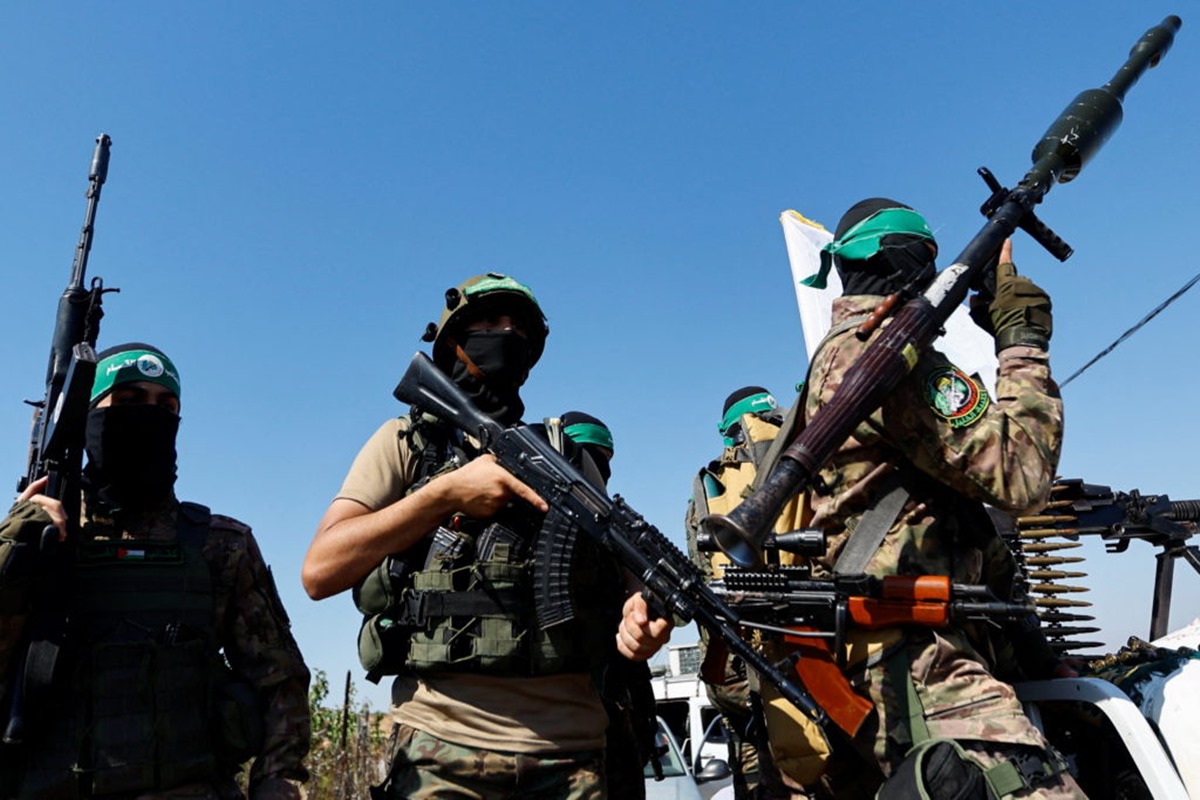Israel receives list of three hostages to be freed from Gaza
Israeli Prime Minister's Office said Friday that Israel has received the list of three Israeli civilian hostages Hamas will release on Saturday.
Hamas, the Palestinian militant group that governs the Gaza Strip, operates a complex funding network to secure finance from charities and friendly nations.

Representation image
Hamas, the Palestinian militant group that governs the Gaza Strip, operates a complex funding network to secure finance from charities and friendly nations. This network allows them to evade international sanctions. Recent events have made it even more challenging for Hamas to access these funds, as a violent rampage by their gunmen resulted in the deaths of hundreds of Israelis, mainly civilians. In response, Israel carried out one of the most extensive bombardments of Gaza in the 75-year history of the conflict.
According to Matthew Levitt, a former U.S. official specialized in counterterrorism, the majority of Hamas’ budget, which exceeds $300 million, primarily comes from taxes on businesses, as well as support from countries like Iran and Qatar, along with charities.
Advertisement
In the period between December 2021 and April of this year, Israel seized approximately 190 cryptocurrency accounts associated with Hamas. This marked a significant disruption to their financial operations.
Advertisement
Hamas’ allies have employed various methods to funnel money into Gaza, bypassing international restrictions. The U.S. State Department has revealed that Iran annually provides up to $100 million in support to Palestinian groups, including Hamas. Iran is known to use shell companies, shipping transactions, and precious metals to transfer these funds.
In the year before 2022, Hamas established a secret network of companies that managed around $500 million in investments across several countries, including Turkey and Saudi Arabia. In response to this, the U.S. Treasury imposed sanctions on these firms in May 2022.
Israel has long accused Iran’s clerical rulers of arming Hamas, alleging their involvement in stoking violence. On the other hand, Tehran claims to provide moral and financial support to the group.
Qatar, a nation rich in gas resources, has also contributed hundreds of millions of dollars to Gaza since 2014. Qatar has a unique foreign policy that involves hosting the region’s largest U.S. military base, the Taliban, and other groups. This positioning has often allowed Qatar to play a mediating role in regional affairs.
Advertisement